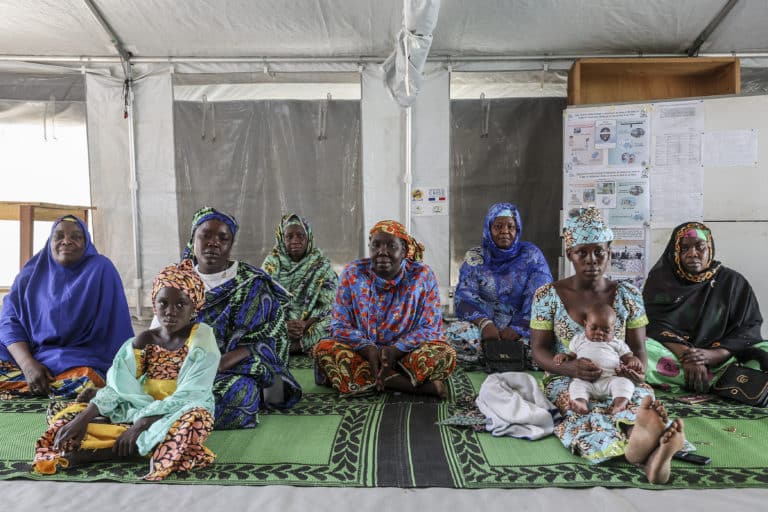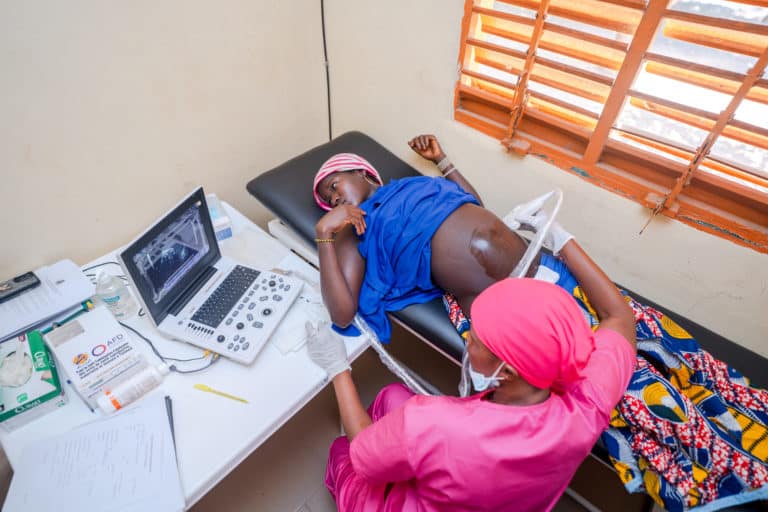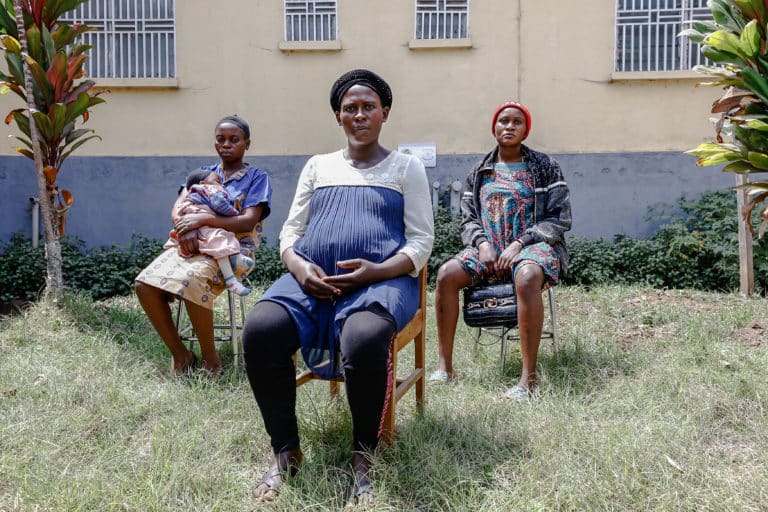Why did you choose to become a midwife?
Well, to answer that question, it’s easy: it’s my calling. I was born in the southeastern city of Bangassou, and ever since I was a little girl, I always knew. I used to say that one day I would be a midwife. So, after graduating , I went to Bangui to take the midwife test. I was accepted, and now I am a graduate. I took the oath.
At work, they call me “Sup, Sup!” I tell them that supervisor is just a title, not my main role. A midwife, that’s what I am. At home the children sometimes call me “Doctor,” but I also tell them that a midwife is a little different. I explain to them that I take care of mothers and babies; that in this job we are called upon to save lives, that it is a noble job. At the maternity ward in Bimbo, there are many complications and emergencies, and we really are saving lives. That’s my favorite part.
What is your best memory this year?
It was during a supervisory visit to the peripheral health centers when I went into the Salanga health center. There was Cécile, a young woman who was bleeding heavily and she was starting to go into labor. It was dangerous to her health. When the matrons saw me, they waved at me to come.
They had wanted to transfer her, to refer her to the hospital in Bimbo, but given her condition, this was not possible. First, we must first stabilize a patient; only then can we move her. Cecile looked at me and asked me to help her. So I analyzed the situation, then I helped delivered the baby, and we succeeded.
Since then, every time I go back there, the children applaud when they see the car and they shout: ‘ALIMA! ALIMA!’ Even the mother, Cecile, comes to us to thank us again. And I’m always happy to see her.
How is ALIMA making a difference in Bimbo?
As you know, the maternal mortality rate is very high in CAR. Women die each day because they lack access to proper health facilities. ALIMA is making a difference by providing free, quality health care to the most vulnerable populations, including breastfeeding women, expectant mothers and children under the age of 5. Many women can’t afford health care, so they prefer to stay home to give birth, which can create many risks. Above all, we provide support to help improve patient admissions. Here, we treat, we provide care, and then it’s OK!
Our work is about patient care, but it is also a lot about the training, supervision and briefings to improve care in peripheral health centres. It is the skills, but also the technical knowledge of the staff that can always be improved, because they are the first points of contact with patients.
For example, in order to reduce the risk of hospital-borne infections, the notion of asepsis (the exclusion of bacteria and other microorganisms, typically during surgery) is explained to all the staff, and the importance of hygiene measures and the rigour of sterilization are reinforced.
Since the arrival of ALIMA, the attendance rate of pregnant women has increased significantly in health centers and deliveries are now carried out in the right conditions. This year, our staff attended nearly 4,000 births. This is making a real difference.
————–
ALIMA (The Alliance for International Medical Action) is is a humanitarian medical organization that works hand-in-hand with a network of local medical NGOs to provide quality health care to the most vulnerable people during emergencies and chronic crises. Based in Dakar, Senegal, ALIMA has treated more than 3 million patients in 12 countries since its creation in 2009, and launched 10 research projects focusing on malnutrition, malaria and the Ebola virus.
ALIMA has been active in CAR since 2013, and currently provides medical and nutritional care at 13 health centers on the outskirts of the capital, Bangui, and in the Bimbo health district, and to 8 health centers in the Boda health district. In 2018, our teams performed more than 100,000 general consultations. In addition to primary health care, ALIMA also supports a 16-bed maternity ward and an operating room at the district hospital in Boda.
ALIMA’s projects in the Bimbo district and Bangui were financed over the period of August 2016 to June 2018 by the Bêkou Fund (Phase II). During this time, our teams carried out 12,508 deliveries and 37,541 postnatal consultations, of which 8,903 deliveries and 31,641 postnatal consultations were financed by the Bêkou Fund. Additionally, 3,154 urgent cases – pregnant and breastfeeding women, children under 5 years of age, experiencing vital emergencies – were referred free of charge to hospital facilities, including 1,909 financed by the Bêkou Fund.
*Cover Illustration: Florence Mahon / ALIMA



